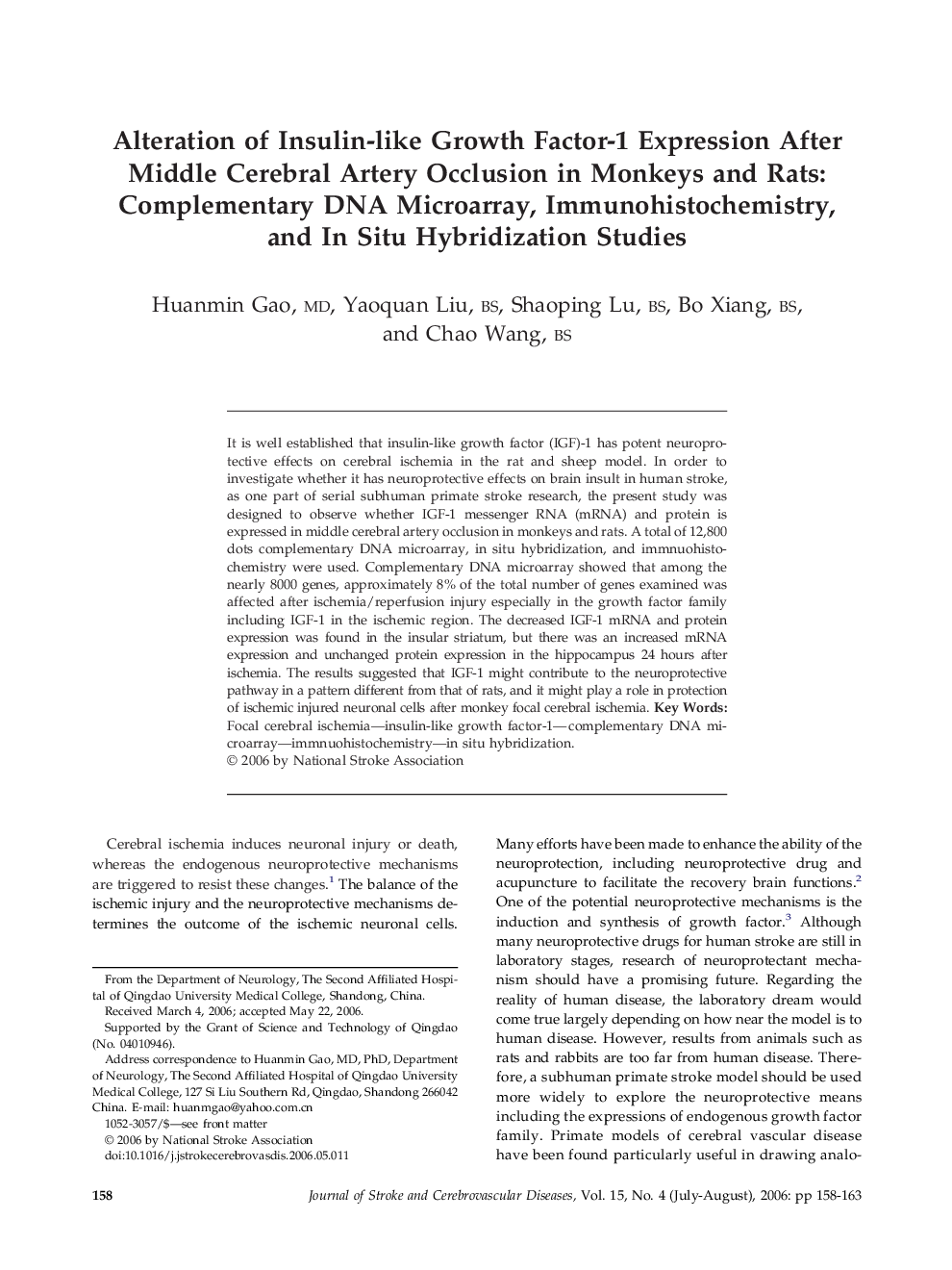| Article ID | Journal | Published Year | Pages | File Type |
|---|---|---|---|---|
| 2712045 | Journal of Stroke and Cerebrovascular Diseases | 2006 | 6 Pages |
It is well established that insulin-like growth factor (IGF)-1 has potent neuroprotective effects on cerebral ischemia in the rat and sheep model. In order to investigate whether it has neuroprotective effects on brain insult in human stroke, as one part of serial subhuman primate stroke research, the present study was designed to observe whether IGF-1 messenger RNA (mRNA) and protein is expressed in middle cerebral artery occlusion in monkeys and rats. A total of 12,800 dots complementary DNA microarray, in situ hybridization, and immnuohistochemistry were used. Complementary DNA microarray showed that among the nearly 8000 genes, approximately 8% of the total number of genes examined was affected after ischemia/reperfusion injury especially in the growth factor family including IGF-1 in the ischemic region. The decreased IGF-1 mRNA and protein expression was found in the insular striatum, but there was an increased mRNA expression and unchanged protein expression in the hippocampus 24 hours after ischemia. The results suggested that IGF-1 might contribute to the neuroprotective pathway in a pattern different from that of rats, and it might play a role in protection of ischemic injured neuronal cells after monkey focal cerebral ischemia.
